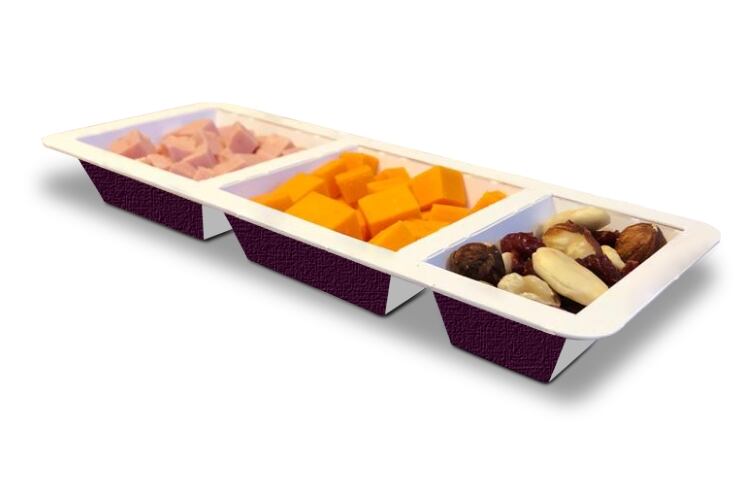Structural impediments in the current industry supply chain can impair the adoption of sustainable packaging materials and methods, said Jerry Rundle, vice president of sales for Harpak-ULMA’s tray packaging lines.
“Entrenched producers are using hundreds of millions of plastic trays each year. They’re embedded in long-term supplier contracts and vested in the associated packaging equipment,” Rundle said.
“To say that changing direction is difficult is a bit of an understatement – it’s like turning the proverbial aircraft carrier. There’s just too much industry resistance. On the other hand, new market entrants don’t have those constraints. For example, new plant-based meat companies are adopting sustainable paper-based tray packaging materials and methods out of the gate because they’re not embedded in the status quo.”
Harpak-ULMA has promoted G. Mondini’s new line of PaperSeal trays as a sustainable alternative to plastic trays, he explained. The packaging concept is the result of a global collaboration between G. Mondini and Graphic Packaging International, which officially launched the new line in North American markets this past February, and in Europe in May 2019.
“Graphic Packaging has more than ten line placements already producing commercial products for multiple customers throughout Europe and Asia,” said David Devenport, vice president, consumer products and convenience for EMEA at Graphic Packaging International.
“This has been achieved in less than 12 months from launch and the momentum is building.”
Trays are produced with renewable fiber sourced from sustainably-managed forests and can employ a variety of designs for retail presentation. Each tray utilizes 80-90% paperboard and 10-20% film, depending on tray dimensions –reducing plastic use and limiting base tray waste to 2% – the lowest in the industry today.
In addition, the tray film liner is easily separated from the paperboard after use, allowing for the paperboard portion to be recycled. A reinforced, one-piece flange design makes sealing surface strength and consistency equal to traditional plastic trays, as well as facilitating automated paperboard de-nesting – a pain point in other paperboard solutions.
Trays can be stacked flat for logistics and inventory. The hermetically-sealed tray provides up to 28 days of shelf life depending on the application, making it suitable for a wide range of applications including cheese, fresh or processed meat, ready-made products, frozen foods, snacks, salad and fruit.
Carlo Bergonzi, Harpak-ULMA’s product manager for Tray Seal, said, “PaperSeal’s design works easily in existing denesters and conveyors – we know, we’ve tested it. Put a new set of tooling in your Tray sealer and you’re ready to go. It’s extremely adaptable to your existing equipment and no more expensive to produce than plastic trays. Also, PaperSeal trays are formed with pre-cut film – there’s no flop or film hanging over the tray – it’s a very clean look that also reduces film waste.”
Bergonzi said PaperSeal is an attractive alternative to traditional plastic clamshell produce packaging.
“Clamshells are typically loaded in the field, and difficult to transport. In addition, consumers appear to prefer a lid seal, while retailers now prefer “tamper” evidence designs. Other major advantages of PaperSeal are its ability to accommodate one-dimensional multi-compartment trays and add header/hanging features to the package. The G. Mondini Trave also incorporates a “Platformer Plus” option that accommodates a PaperSeal stacker unit. When you combine all that functionality, the dramatic reduction in material waste, plus the ability to pop it into your existing line inexpensively – it makes this an extremely pragmatic sustainable solution.”
Rundle said, “We recognize that the North American market dynamics are different than European markets. We plan to work with some existing customers that already own a Mondini Tray sealer and want to trial sustainable technology on a new product line. It’s a low risk, low cost scenario. We can re-tool a line in 10-12 weeks and they can be producing a new, sustainable package style at moderate volumes pretty quickly.”

